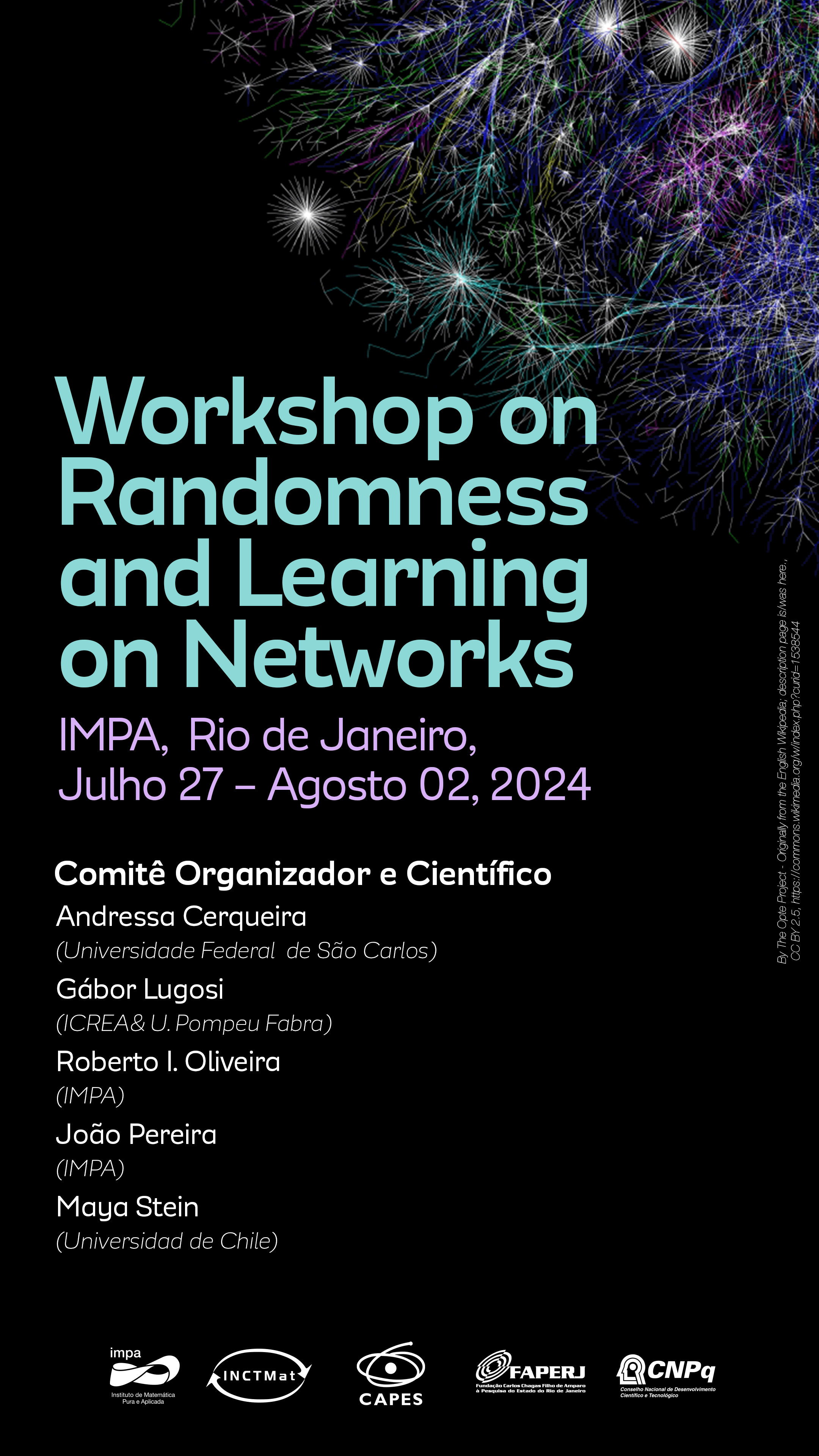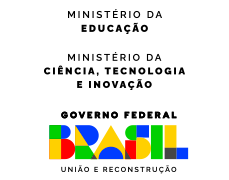Randomness and Learning on Networks

July 29th to August 30th, 2024
IMPA, Rio de Janeiro, Brazil
“Large networks” is one of the key notions of contemporary science and technology. Examples of such networks include examples as diverse as computer and communications networks, the Internet, social networks, networks formed by protein interactions, and the networks underlying financial markets.
With the explosion of available data in practically all areas of knowledge, statistical data analysis faces challenges of unprecedented dimension and social relevance. In a rapidly growing number of applications, one needs to analyze and interpret data coming from massive networks. The statistical problems arising from such applications pose important novel mathematical challenges. These challenges include building novel probabilistic models, understanding the possibilities and limitations for statistical detection and inference, designing efficient algorithms for executing them, and understanding the inherent limitations of fast algorithms.
In this event, we bring together researchers interested in these challenges and related topics in Probability, Statistics and Computer Science. A number of talks will present the state of the art of these areas. In addition, mini-courses aimed especially at young researchers will be offered, with the goal of bringing them up to speed with the main topics of the event. Open problem and working sections are a key part of the program, and collaboration between all participants will be strongly encouraged.
This is the third event organized by the “Randomness and Learning in Networks (RandNET)” project. RandNET is funded by the MSCA-RISE – Marie Skłodowska-Curie Research and Innovation Staff Exchange Programme (RISE) under the Grant agreement ID: 101007705. Month-long participants from RandNET institutions in Europe and Chile may be funded through secondments from this grant; contact the team leader at your institution for more details.
*Official hotels and agencies are not allowed to contact participants, unless he/she had already contact the hotel previously. To make a reservation, please contact the hotel of your choice directly.
If you have received a message from Global Travel Experts it is not from the organization of the event, probably a scam. All the official messages about the event are sent by the e-mail eventos@impa.br. *
- Program
- Week 1 – Workshop on Randomness and Learning on Networks
July 29th to August 2nd, 2024 - Weeks 2 to 5 – Extended Program
August 5th to August 30th, 2024
- Week 1 – Workshop on Randomness and Learning on Networks
Organizing committee
Andressa Cerqueira (Universidade Federal de São Carlos)
Gábor Lugosi (ICREA & U. Pompeu Fabra)
Roberto I. Oliveira (IMPA)
João Pereira (IMPA)
Maya Stein (Universidad de Chile)


